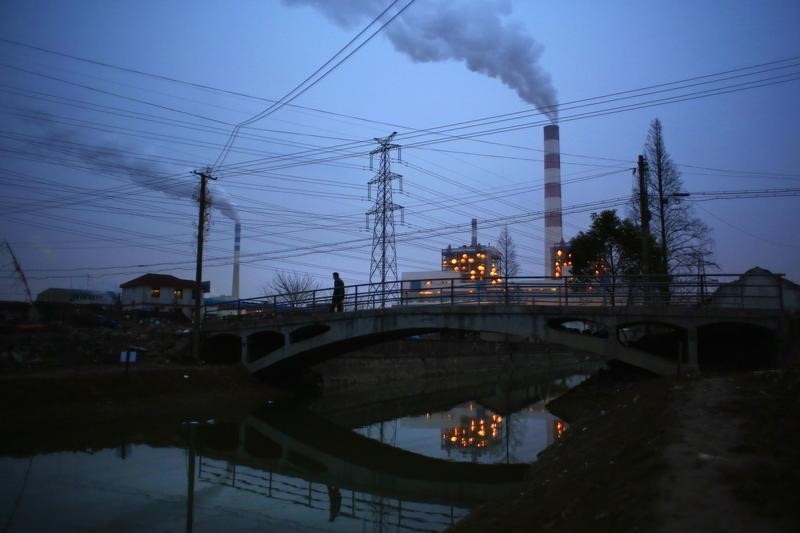By David Stanway
BEIJING (Reuters) - Industrial overcapacity in China has got much worse since 2009, with Beijing struggling to implement reforms and overcome the resistance of growth-obsessed local governments, a European business lobby said on Monday.
China's central government has identified overcapacity and the closure of debt-ridden "zombie" firms as one of its key policy priorities for 2016, and it has already published action plans aimed at shutting 100 million-150 million tonnes of low-end steel capacity and 500 million tonnes of coal production.
The plans were the latest in a long line of measures aimed at tackling debilitating capacity gluts in several major industries, but it remains unclear whether Beijing can force failing enterprises out of the market and resolve problems like debt and unemployment, the European Union Chamber of Commerce in China said in a report.
"China is always enticing industries to grow. The system breeds overcapacity," said Joerg Wuttke, president of the chamber.
With regional governments still chasing growth, there are insufficient incentives to close down failing firms, which are also treated leniently by local banks and environmental regulators, the report said.
Local governments have also obstructed mergers and acquisitions amid fears that vital tax revenues will be transferred to other jurisdictions, and China needs to provide more revenue streams for regional authorities, the report added.
Wuttke told reporters that China had let its overcapacity problem get worse since 2008, approving huge new projects and allowing utilisation rates in sectors like steel, aluminium and chemicals to plummet further. Of the nine industrial sectors tracked by the chamber, only wind turbine manufacturing saw any improvement in capacity utilisation over the period.
"You should actually make your assets sweat and utilise them to 100 percent, but that is not the case here, and the industrial landscape is becoming more and more inefficient," Wuttke told reporters.
"China released the mother of all credit avalanches, hence the double-digit growth and making decision makers more complacent - they thought they could outgrow the previous overcapacity problem," he said.
With demand slowing and prices collapsing, China's bloated industries are facing mounting debts and heavy losses, and Beijing no longer has the "deep pockets" required to bail out struggling firms with fresh stimulus measures, Wuttke said.
Firms have tried to export their surpluses, leading to plunging global steel prices, the closure of plants in the United Kingdom and a growing number of anti-dumping investigations into Chinese products, he said.
According to the China Iron and Steel Association (CISA), China now has an annual capacity surplus of around 400 million tonnes, with utilisation rates falling to 67 percent in 2015. Though production fell for the first time since 1981 last year, capacity will probably increase further in 2016.
